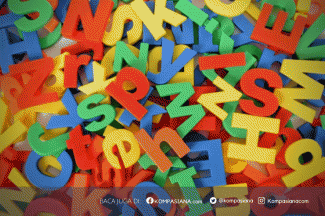A week ago senior high school students eventually got themselves a relief. Some of them now are finding the right place to study further or to earn for living whereas the rest are gaining courage and spirit to take the remedial exam.
Subjects they had been tested on can’t be said to be a piece of cake. All those scientific concepts, language knowledge, and mathematical patterns could be troublesome for some students. Worried of failures, students take any possible path to get them ready for the scary-looking exam, for example by taking intensive private courses up to religious-related activities in order to get a moral support for the breath-taking event.
Likewise, schools devote their available resources, namely, finance, thoughts, energy, etc for the exam. The national exam might be a milestone to measure their success in ‘educating’ students. This is paramount especially in the middle of the tough competition among educational institutions. Failing to deliver students to pass the exam could be very embarrassing for them and counter-productive to the campaign they have claimed that their schools are the best which apply international curriculum, provide magnificent facilities, and stuffs.
However, this frantic circumstance to preparing students for the national exam, schools might have forgotten that there is something vital missing in their practices. In a culturally and socially diverse nation like Indonesia, the understanding and tolerance across ethnicity, faiths, as well as economic strength deserve equal attention. Being culturally, economically, and socially rich is not necessarily good, at the other hand it can be a source of conflict. And this is where school responsible for tackling the issue.
Applying a policy to prohibit students not to eat in front of Muslim peers during the fasting month is not yet sufficient. It has got to go beyond it, something more essential. It is to nurture students’ sensitivity about others’ feelings, being able to sympathize and empathize, how it feels to be someone totally different to oneself, and eventually this would promote quality understanding to others who are socially, economically, and even physically distinct.
Suppose all efforts the educational schooling succeeds, making students pass the exam, what kind of society shall be realized? There will come English-speaking generation of scientist who can make humans lives much easier than before. There also comes a time when everyone when intellectually advanced and has larger brain capacity. Sounds good, doesn’t it?
Similar to parents, schools are responsible for inseminating tolerance in the minds of young generations. The reason is the amount of time a student spends at school. They spend most their times at schools. From Monday to Saturday (or Friday) fro 7.30 am up to around 2 pm. They interact to each other and grow as adults most of the time at school. They learn how to cheat, skip some classes, and watch adult videos even in schools, not to mention to practice bullying. Schools indeed have potential power over students to get them more tolerant during the school hours. Every student grows both intellectually and emotionally at schools.
Surely, academic matters should never be abandoned. However, there should also be a place left to grow the understanding of diversity among students aside from the national exam. It’s worth-doing at least to prevent the possible nightmare where war of the world between intellectually super advanced creatures slay one another over inevitable differences lay among them.
Baca konten-konten menarik Kompasiana langsung dari smartphone kamu. Follow channel WhatsApp Kompasiana sekarang di sini: https://whatsapp.com/channel/0029VaYjYaL4Spk7WflFYJ2H
